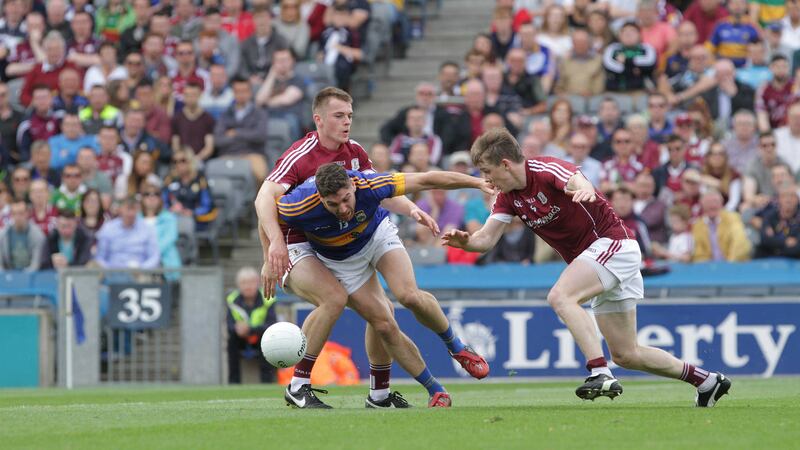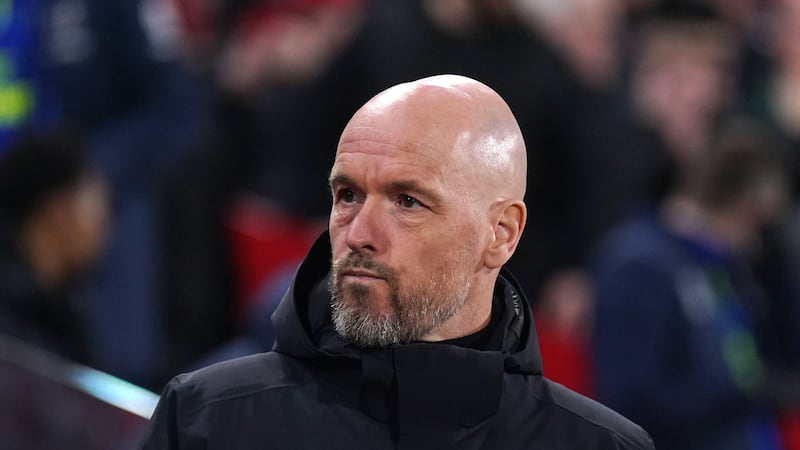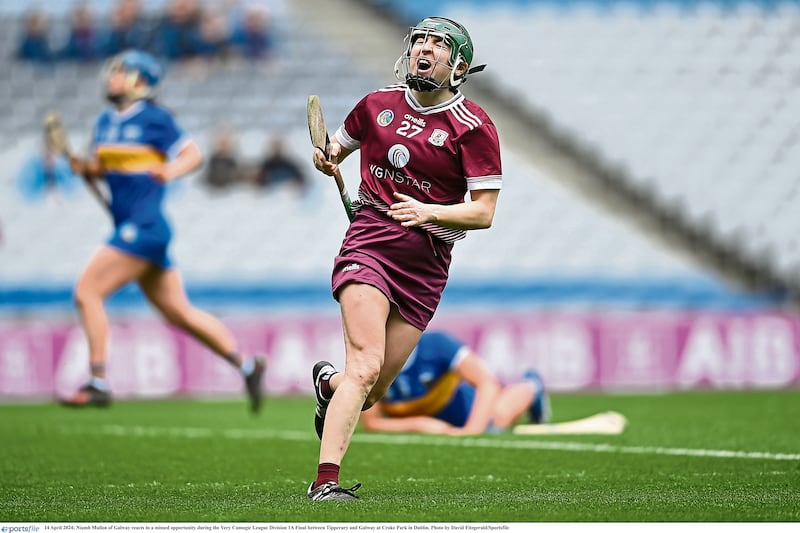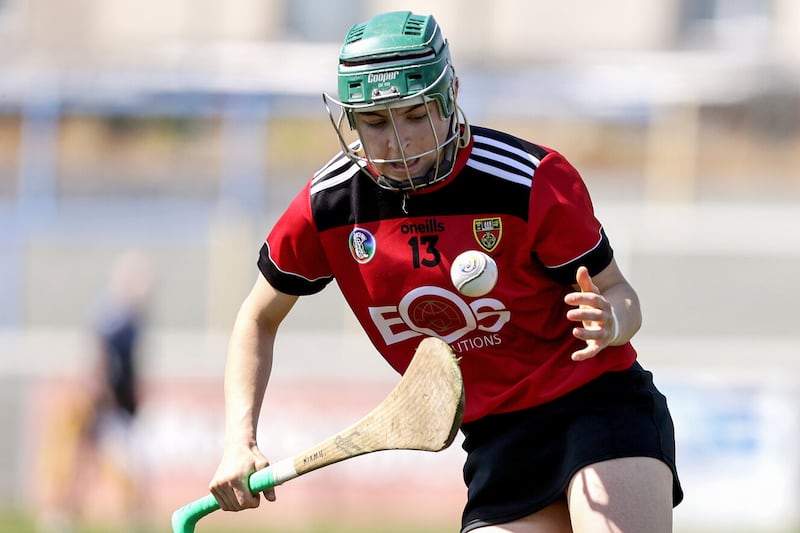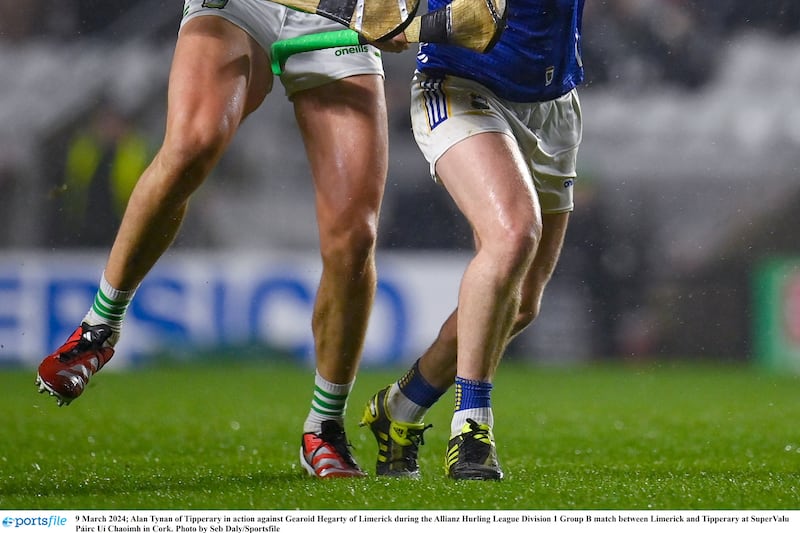TIPPERARY’S triumphant progress to the All-Ireland Senior Football Championship semi-finals is clearly the story of the season so far.
Indeed, it’s the most remarkable achievement for several years, made all the better by the free-flowing football they have played. Even a lucky one-point victory over Galway in last Sunday’s quarter-final would have been warmly welcomed by almost all but followers of the Tribe men, so to destroy them by nine points, without scoring for the last 20 minutes of play, was simply sensational.
However - you expected a ‘but’, didn’t you? - the downside of Tipp’s surge to the last-four is it provides ammunition for not one, but two dubious arguments. The first is ‘there’s absolutely nothing wrong with the Championship’, with the associated comments that there’s no need for any changes to the format. The second is that old chestnut, ‘the league doesn’t matter’.
Brilliant though Tipperary’s presence in football’s last-four is, even all the newsprint used to describe and laud their performance in the All-Ireland quarter-final would not suffice to paper over the cracks in the Championship format. Kerry’s path to the semi-final sums up much of what’s wrong: the Kingdom have only had to play two Division Three teams, Clare (twice) and Tipperary to get there and have beaten them by an average of 11 points.
As I’ve often acknowledged, Kerry are usually excellent, always very good, so they’re likely to make it to the latter stages anyway. Yet, it’s not right that their path is smoother than the leading Ulster teams year-after-year, decade-after-decade. Tyrone this year, if they are to join Kerry in the semi-finals, will have had to get past two Division Two teams, Derry and Cavan - with the latter promoted to Division One for next year - and two Division One sides, Donegal and Mayo.
Similarly, Donegal have had to play Division Two Fermanagh, Division One Monaghan (twice), then Division Two champions Tyrone and Division One Cork, before taking on the might of reigning All-Ireland and Division One champions Dublin for a place in the semi-finals.
‘Ah, but the league doesn’t matter!’, I hear some cry.
‘Balderdash’, I reply.
Although Tipperary may have only finished sixth in Division Three (albeit only a point behind promoted Clare in a very tight table), all the other teams in the All-Ireland quarter-finals did fairly or very well in this year’s National Football League. Dublin won Division One (for the third consecutive season), beating Kerry in the final. Donegal finished fourth in the top-flight. Tyrone won Division Two and Clare won Division Three.
Okay, I may be stretching the point a little with Mayo and Galway, but the former retained their regular top-flight status, while the latter finished third in a highly competitive Division Two. In contrast, look at how the Division Four teams that would have been in a proposed B championship fared in this year’s Championship(s).
Antrim, Louth, Waterford, Wexford, Wicklow and London all lost both their Championship matches. The other two teams from Division Four only beat opponents from that same level in the All-Ireland Qualifiers before exiting: Leitrim beat Waterford, while Carlow beat Wicklow. Leitrim were then well-beaten by Sligo, while Carlow lost by seven points, albeit away to Cavan.
So please stop with the claims that Tipperary’s achievements have done away with any arguments for a new Championship format. Tipp (or Clare) wouldn’t have been in that eight-team B championship anyway. Besides, the more sensible suggestions for change envisage a tiered structure, where counties can work their way up, either within a calendar year’s competition or over several seasons.
You could have Division Four teams playing off first, then Division Three teams joining the competition and so on, or else have graded championships, as is the way at club level (senior, intermediate and junior) and in hurling (MacCarthy, Ring, Rackard and Meagher cups).
A football format can certainly be designed to allow access to all counties but have better balance, so that progress is much more about merit than due to geography and quirks of history. With fewer counties involved, Connacht and Munster are usually able to complete their Championships before Leinster and Ulster.
That meant Tipperary, who lost their provincial decider to Kerry on July 3, had almost three weeks to prepare for their round 4A match on July 23. Their opponents, Derry, had played on the previous two Saturdays, July 9 and 16, coming through two tight tussles against Meath and Cavan. It was no great shock Tipperary finished much more strongly to battle back for a thrilling one-point victory.
Sure, there’s an element that provincial progress should earn you some benefits, but there’s no escaping the fact some provinces are tougher than others, both in terms of opposition and scheduling. For example, Derry needed to get past Tyrone to avoid round one of the Qualifiers - Tipperary only had to beat Waterford.
Clare got to the All-Ireland quarter-finals after wins over Limerick (relegated from Division Three), Laois (relegated from Division Two), Sligo (fifth in Division Three) and, admittedly, a Division One Roscommon team, but one coming off the back of a devastating provincial final defeat only six days earlier.
Much was made of this being the first year four Munster teams reached the football quarter-finals, but that merely pointed up the previous lack of strength in depth in that province (I accept hurling may be a small factor in that). Cork (usually) and Kerry (occasionally) have generally benefitted from the more favourable scheduling for their beaten provincial finalists, as Tipperary did too.
None of this is to take away from the wonderful work done in Tipperary, shaped at senior level by John Evans, Peter Creedon and, now, Liam Kearns. Yet, all Tipp getting to the last-four proves is they have a very talented group of players managed by the excellent Kearns, a man who has a knack of lifting a county to overtake Cork as the second team in Munster.
But then, we knew those things already. And we also know the league largely does still matter - and the Championship does need change.

